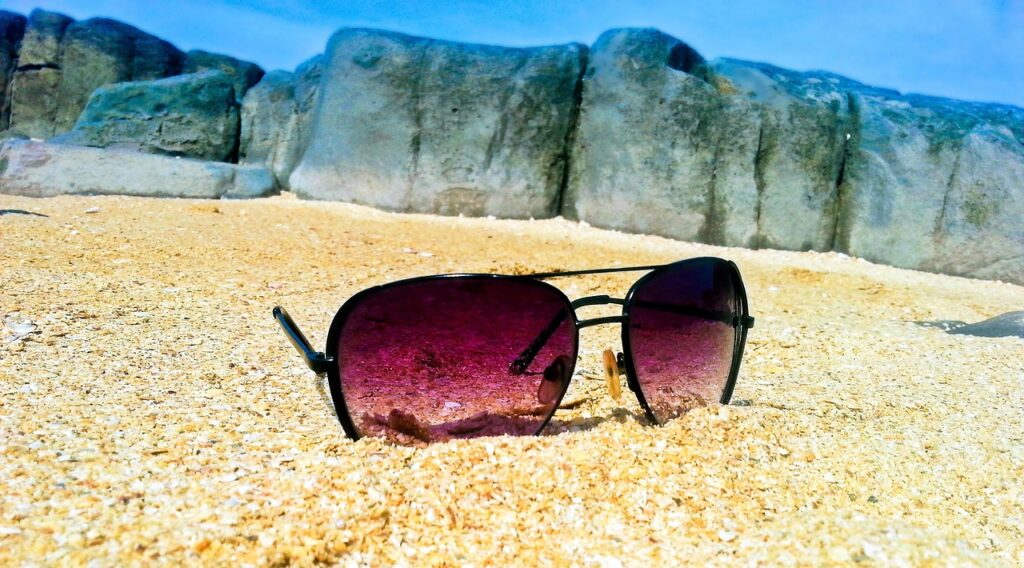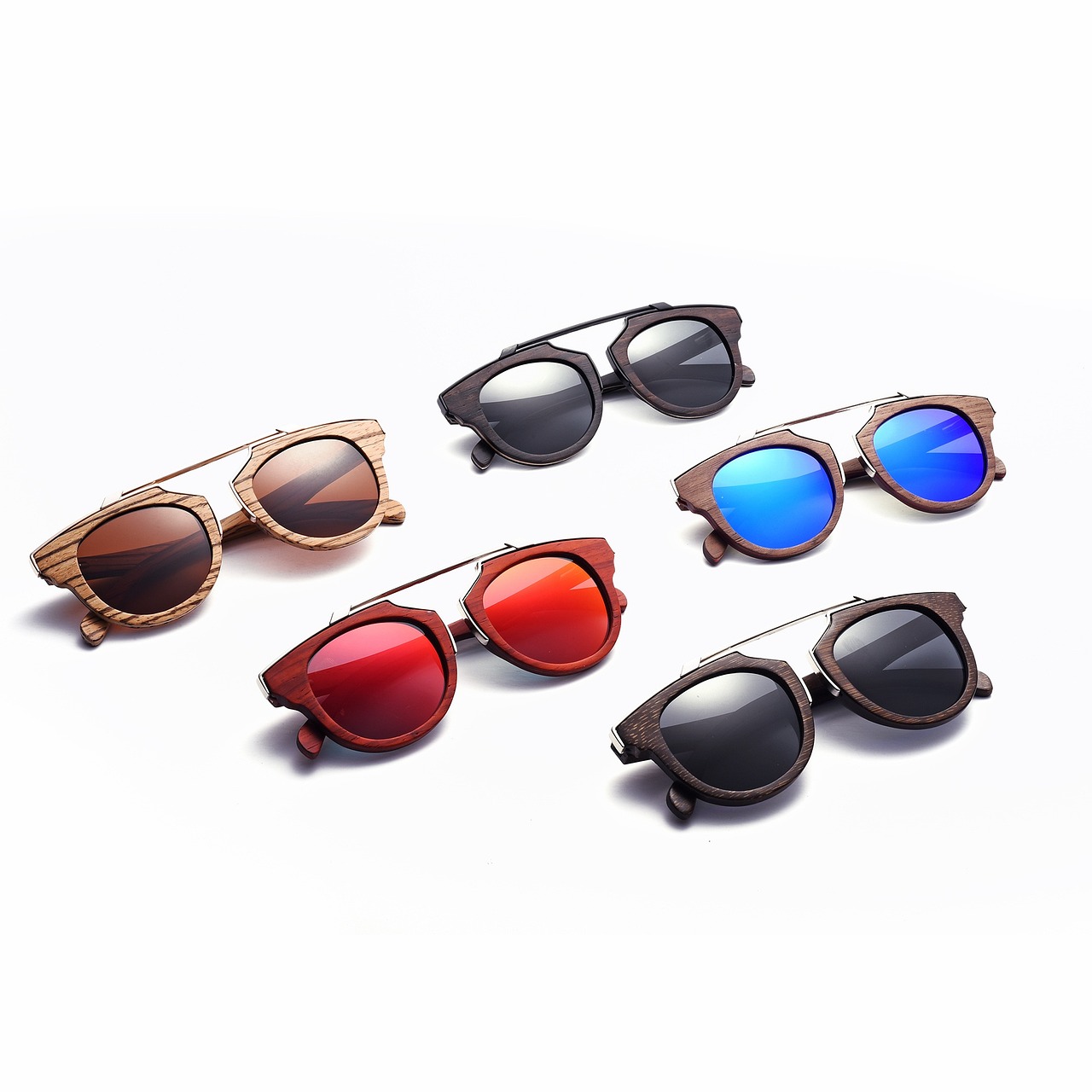Sunglasses might seem like a summer staple, but they’re just as essential in winter. While the sun’s rays might feel more intense in the summer, UV exposure and glare don’t disappear when temperatures drop. This article explores the differences between winter sunglasses vs summer sunglasses, helping you understand why both play a key role in eye protection and style. Let’s dive into the unique benefits and features of each so you can make the right choice for every season!
Why Sunglasses Matter Year-Round
While most people associate sunglasses with warm, sunny days, the truth is that UV exposure and glare can be just as harmful during the winter. Snow, for instance, reflects a significant amount of UV radiation, causing even more glare than typical summer conditions. If you’ve ever squinted on a bright winter day, you’ll know the value of a good pair of polarized sunglasses.
For people who wear glasses daily, this can be especially important as the winter months can still expose your eyes to harmful rays, and that’s where winter-specific sunglasses come in. They’re crafted with features meant to tackle cold weather conditions and low-angle sunlight.

How Winter Sunglasses Differ from Summer Sunglasses
So, how do winter sunglasses vs summer sunglasses actually differ? There are a few specific features that make winter sunglasses especially useful for cold weather conditions.
1. Lens Tint and Glare Protection
Winter sunglasses typically come with specialized tints that help reduce glare from snow and ice. Unlike summer sunglasses, which may have darker tints for sun protection, winter sunglasses often feature lighter shades that maximize contrast. Lenses in amber, copper, or yellow shades help increase depth perception in cloudy, low-light winter conditions.
For example, if you’re skiing or engaging in other winter sports, you’ll want lenses that can handle rapid light changes and improve visibility in snowy landscapes. This tint choice is also ideal for those with prescription lenses for glasses, as it enhances clarity without overwhelming the eyes with darkness.
2. Polarization and UV Protection
Polarization is an essential feature for both winter and summer sunglasses, but its benefits are even more apparent in winter. Snow can create intense glare, making polarized lenses essential to cut through this reflection. Polarized sunglasses reduce glare and provide better overall comfort for your eyes.
Remember that the right winter and summer sunglasses should also block 100% of UVA and UVB rays. UV protection isn’t just for summer beach days; the UV index can still be high in winter, especially in snowy, reflective environments.
3. Frame Durability and Style
When it comes to frames, durability is key in winter sunglasses. Cold weather can make some materials brittle, so winter sunglasses often feature flexible or reinforced frames. Many manufacturers create glasses frames materials designed to withstand cold temperatures without cracking or warping.
Style also varies between winter and summer sunglasses. In winter, you may prefer a wrap-around style to help block wind and keep out cold air, while in summer, lighter, more open frames may be ideal. Sunglasses for rock climbing or sunglasses for water sports will vary in style too, depending on your activity.
4. Fog-Resistant Lenses
Winter sunglasses often include anti-fog technology or coatings, as glasses fogging up can be a bigger issue in cold weather. Going in and out of warm spaces and cold environments can cause lenses to fog up, which can be frustrating if you’re constantly having to clean them.
Fog-resistant lenses can be a real game-changer, especially if you’re frequently outdoors or doing winter sports. If you need to clean glasses between lens and frame due to fog or moisture, this can add a layer of maintenance, so fog-resistant lenses reduce the hassle.
Which Sunglasses Are Best for Outdoor Activities?
If you’re active in both winter and summer, you may need multiple pairs of sunglasses to suit each season’s unique conditions. While sunglasses wholesale Dubai options can be cost-effective, it’s crucial to pick quality lenses for specific needs like winter sports or driving.
1. Sunglasses for Winter Sports
Winter sports like skiing and snowboarding require high-contrast lenses, typically with amber or yellow tints. Look for durable frames that won’t crack under cold conditions and lenses that are shatter-resistant, which are especially helpful for activities like snowboarding.
2. Sunglasses for Driving
Winter driving can be intense with low-lying sunlight and glare from snow or wet roads. Polarized lenses are a must, but choosing a lens tint that enhances contrast in cloudy weather can be equally beneficial.
And remember, even if your sunglasses are equipped with high-quality lenses, they won’t do much good if you don’t put glasses in a case when they’re not in use. Proper storage keeps lenses clean and protects frames from damage, ensuring they’re always ready for action.

When Should You Wear Winter Sunglasses?
Wearing winter sunglasses isn’t just for snowy days on the slopes. Bright, clear winter days and cloudy conditions can both benefit from the right eyewear.
- Snowy or icy conditions: Snow reflects a lot of light, which can cause discomfort and even temporary blindness. Sunglasses reduce glare and protect your eyes.
- Overcast days: Even when the sun isn’t out, UV rays penetrate the clouds. Sunglasses can help you avoid UV exposure and protect your eyes.
In fact, choosing the right sunglasses can even help with glasses from sliding down nose, a common annoyance for those wearing bulky winter layers that push frames out of place.
Transitioning from Winter to Summer Sunglasses
Once winter ends, it’s time to switch back to your summer sunglasses, which are better suited for longer days and intense sunlight. Summer sunglasses may include darker lenses to combat direct sunlight and often have lighter frames for a cooler fit. If you prefer versatility, some sunglasses come with magnetic glasses frames that allow you to swap out lenses based on the season.
For those needing prescription glasses, you might even find dual-purpose lenses or clip-ons that make transitioning between winter and summer styles easier.

Winter and Summer Sunglasses for Year-Round Protection
When it comes down to winter sunglasses vs summer sunglasses, both are must-haves for keeping your eyes safe and comfortable year-round. Winter sunglasses protect against unique challenges like snow glare and low-angled sunlight, while summer sunglasses are designed for the bright, direct sun. Having a pair for each season means you’ll be ready for whatever Mother Nature throws your way.
So, which type of sunglasses do you prefer in winter or summer? Have you noticed a big difference in protection or comfort between the two? Let us know in the comments below! And for a range of sunglasses suited for every season, check out our collection at Optics4Less.

